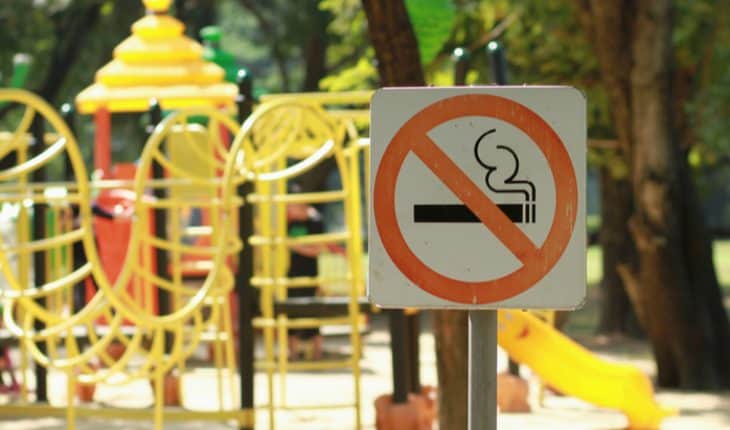Removing displays of tobacco products from shops may have reduced the proportion of children buying cigarettes by 17 per cent, according to new research from Imperial College London.
The research, the first analysis of the impact of the 2015 tobacco display ban in England, assessed survey responses from 18,000 11-15 year olds from across England between 2010 and 2016.
The findings suggest tobacco display bans may have an important role in reducing the number of child smokers.
However, the study also revealed more worrying findings, and suggested more than two in three child smokers had not been refused cigarettes when they last attempted to buy them – a figure that remained unchanged between 2010-2016.
Furthermore, the majority of child smokers said it was easy to buy cigarettes in shops. This rose slightly from 61 per cent in 2010 to 65 per cent in 2016.
In 2015 the display of cigarettes was banned in all shops in the UK. Before this, 57 per cent of children who smoked regularly bought their cigarettes in shops.
In 2015 the display of cigarettes was banned in all shops in the UK. Before this, 57 per cent of children who smoked regularly bought their cigarettes in shops.
However the latest study, published in the journal Tobacco Control, revealed this fell to 40 per cent by 2016.
NHS data suggests just over one in 20 children smoked in England in 2016, a decline from just under one in ten in 2010.
There are currently 9 million adult smokers in the UK, and many of these would have started in childhood, explained Dr Anthony Laverty, lead author of the research from the School of Public Health at Imperial: “We know that smoking kills one in every two smokers, and that children who smoke are likely to continue smoking throughout their lifetime, seriously increasing their risk of disease. We also know seeing cigarettes displayed in shops is linked to smoking, especially among children. This research shows that removing displays made tobacco less visible to children, and that fewer of them bought cigarettes there. Most countries worldwide still allow cigarettes to be advertised and displayed in shops. This research provides evidence that the introduction of display bans will be an effective measure against children smoking – and could help save them from starting a deadly habit.”
The researchers analysed data from the Smoking, Drinking and Drug Use Survey from 2010 to 2016. This anonymous questionnaire quizzes 11-15 year old children across England, and is conducted at schools under exam conditions.
The findings also showed that among the children who smoked, the most common source of cigarettes was from friends, followed by shops. This remain unchanged between 2010-2016.
Interestingly, there was no increase in children reporting they had purchased cigarettes from illegal sources. The proportion of children who said they had bought cigarettes from street markets remained steady at under 10 per cent between 2010 and 2016.
The team acknowledged that other measures were put in place between 2010-2016 that may have helped reduce smoking rates, such as the ban on cigarette vending machines and higher taxes.
Dr Laverty said: “During this time adult smoking rates have fallen and higher taxes have increased the price of tobacco. All these factors have a role to play, and these findings suggest removing cigarette displays are an important component. Smoking rates fall fastest when complimentary measures are put in place.”
Dr Nicholas Hopkinson, senior author on the study from Imperial’s National Heart and Lung Institute added: “These results are encouraging but more work is needed to ensure effective tobacco control. Our findings suggest it is still too easy for children to purchase cigarettes in shops. Enforcement is important, but Government cuts have meant that councils have seen a 56 per cent reduction in trading standards officers between 2009 and 2016. A licensing system for tobacco retailers needs to be introduced – similar to that seen for alcohol – which could be paid for through a levy on tobacco industry sales.”
- New lipid-based pathway discovered as key to memory formation - 25th June 2025
- Crucial link could explain how Alzheimer’s takes hold - 25th June 2025
- Understanding Your Mind Can Improve Daily Life - 25th June 2025







